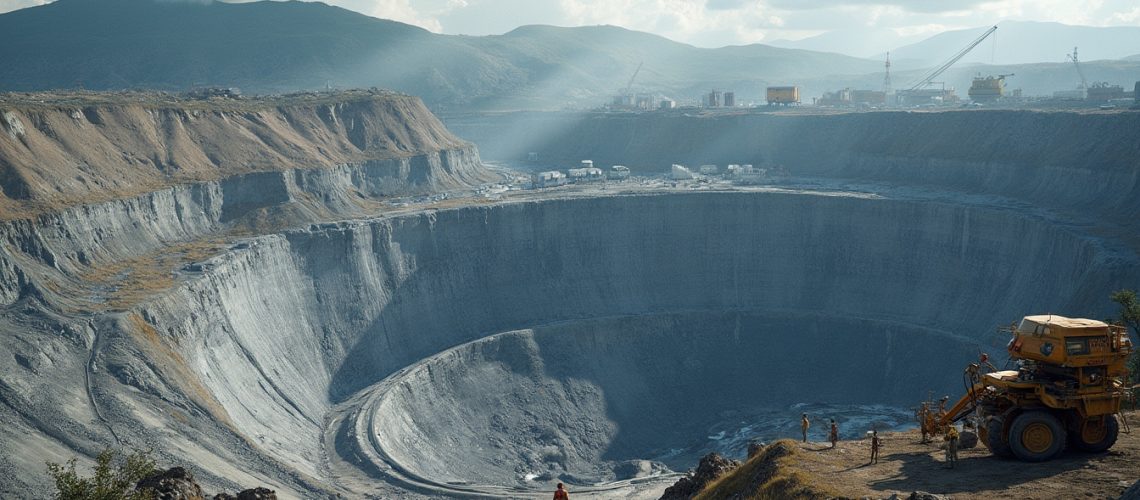Congo suspends cobalt exports oversupply counteraction is having far‐reaching implications for global metal markets. The decision taken by the Democratic Republic of Congo represents an unprecedented and strategic intervention aimed at redressing market imbalances, managing surplus supply, and stabilising pricing mechanisms. In a region already witnessing significant transformations—such as the ongoing copper boom—this move highlights the evolving challenges and opportunities faced by countries rich in critical minerals.
What Triggered the Suspension?
The government agency, the Authority for the Regulation and Control of Strategic Mineral Substances' Markets (ARECOMS), has implemented a four-month export suspension as a response to an oversupplied cobalt market. This intervention is part of a broader strategy to address market volatilities by managing the supply and, in turn, the pricing of this critical resource used in batteries for electric vehicles and mobile technology.
Key factors triggering this decision include:
- Severe market oversupply that has depressed cobalt prices.
- The need for a controlled rebalancing of supply chains both domestically and globally.
- An initiative to leverage policy tools to ensure more predictable and stable market conditions.
This strategic pause is not only about balancing supply and demand but also about establishing a firmer negotiating position in the international market. Over the past few months, reports have emerged detailing similar interventions globally, with countries experimenting with policy measures to enhance value capture. For an in-depth look at similar market interventions, you might find insights in a Reuters report that discusses the broader context of such decisions.
Global Significance of the Intervention
As a pivotal supplier responsible for approximately 70% of the world's cobalt, the export suspension has major implications for the global supply chain. Battery technology, especially for high-performance lithium-ion batteries, relies heavily on fine-tuned supply mechanisms. The current step taken by Congo is designed to create a more deliberate and controlled distribution of this key resource.
Impacts on Supply Chains and Market Pricing
- Short-term disruptions may be experienced as manufacturers adjust to the constrained supply.
- Market volatility in battery metal prices could intensify, affecting production costs for electric vehicles and consumer electronics.
- The decision could accelerate the exploration of alternative sources, as industries seek to mitigate risks associated with concentrated supply.
Manufacturers, investors, and strategic market players are now evaluating how to compensate for potential shortages, and some are even considering technological innovations such as virtual reality mining techniques that promise enhanced safety and efficiency on-site.
Unpacking the Market Intervention Strategy
Congo's government is using this period of suspension to reassess and strengthen its position within the global market. The intervention is not simply a temporary measure; it is a calculated move to restructure international trading dynamics and bolster domestic processing of cobalt.
Strategic Aims and Approaches
- Enhancing the role of local refiners in the mineral processing value chain.
- Strengthening pricing mechanisms to reflect true market conditions.
- Boosting long-term economic gains by increasing the value addition before exports.
This deliberate measure is part of a wider strategic vision that looks to transform how the nation manages its mineral wealth. By creating a more resilient and forward-thinking export framework, Congo is addressing both immediate pricing issues and long-term industry challenges.
Consequences for the Global Battery Industry
The ripple effects of this export suspension are expected to be significant across the global battery ecosystem. Manufacturers around the world are keeping a close eye on how this decision will impact the broader landscape, particularly in industries reliant on steady access to cobalt.
Key Anticipated Impacts Include:
- Adjustment of supply contracts and recalibration of procurement strategies.
- Increased interest in regional battery metal markets, as other producers step in.
- Higher volatility in the short term, paving the way for diverse sourcing options.
For those following market trends, details on global battery minerals challenge offer further data and analysis on these evolving dynamics.
The Role of Geopolitics in Resource Management
The export suspension highlights not only economic considerations but also underlying geopolitical tensions. Many resource-rich countries are now rethinking their policies to ensure that they capture more value from their natural resources. Countries like Chile, for instance, are navigating similar challenges related to their lithium reserves, as described in a detailed look at the chilean lithium surplus.
Geopolitical and Economic Considerations:
- National strategies aiming to reduce dependency on volatile international markets.
- Domestic policy shifts geared toward increasing value addition.
- Global power dynamics that could reshape mineral supply routes and alliances.
These aspects underscore the increasing importance of strategic interventions in mineral trading, where economic imperatives meet geopolitical strategy.
Broader Market Trends and Investment Perspectives
Investors and industry analysts are closely evaluating Congo’s decision in light of its potential to reshape global market dynamics. With the overarching narrative of "Congo suspends cobalt exports oversupply counteraction" emerging as a key point in industry discussions, market players are reconsidering their risk exposure and strategic investment avenues.
Points to Consider for Investors:
- Diversification of supply sources to mitigate risks associated with concentrated production.
- Increased investment in domestic mineral processing technologies.
- The potential for long-term structural changes in how cobalt and other battery metals are traded internationally.
The investment landscape is being fundamentally reoriented, with a greater focus on both sustainability and risk mitigation. This shift is echoed by new research into the battery metals boom, where geopolitical factors, supply chain considerations, and recycling challenges come together to create a rapidly evolving market environment.
Long-term Developments and Future Outlook
The export suspension is not a static event but rather a starting point for a series of potential long-term changes in the cobalt market. Analysts speculate that this move could act as a catalyst for broader reforms in the international mineral trading system.
Future Scenarios to Watch:
- Reevaluation of long-term supply contracts between African cobalt producers and global buyers.
- Structural market reforms that could see a shift towards more decentralised and transparent trading practices.
- Increased policy focus on reducing environmental impacts associated with mining operations.
With these strategic implications playing out, the narrative around "Congo suspends cobalt exports oversupply counteraction" is expected to influence policy debates and investment strategies worldwide.
Comparative Analysis: How Do Other Regions Fare?
While Congo’s decision is a significant development, it is part of a broader trend of resource nationalism and economic adjustment. Comparisons with other mineral-rich regions reveal distinct approaches to handling oversupply challenges.
A Comparative Look:
- In countries with a long-standing history of mineral resource management, similar measures have been taken during periods of oversupply.
- The interplay between market intervention strategies and domestic industrial policies is evolving, with nations increasingly seeking to capture more downstream value.
- International bodies are also reviewing how such interventions impact global supply chains and are suggesting reforms to international trading rules.
In this context, the swift policy shifts in Congo serve as a case study, offering valuable lessons for other countries facing similar conditions.
Summarised Key Points
- Congo’s four-month export suspension seeks to correct an oversupplied cobalt market.
- The nation’s dominant role in global cobalt production makes its actions pivotal for international battery supply chains.
- Strategic moves, including enhanced domestic processing and revised pricing strategies, underpin the decision.
- Broader geopolitical and economic implications intersect with evolving global market dynamics.
- The decision is part of a wider movement of resource nationalism and strategic supply chain reform.
For further in-depth coverage of international market adjustments, one can consult the latest mining update that provides detailed industry insights and analyses.
Concluding Reflections
The decision that Congo suspends cobalt exports oversupply counteraction marks a transformative chapter in global mineral trading. As nations seek to balance supply and demand through both policy and technological innovations, the long-term implications stretch far beyond mere market adjustments. From bolstering domestic capabilities to reshaping international alliances, this decision is a vivid example of how strategic interventions can catalyse broader economic and geopolitical shifts.
With investments increasingly moving towards innovative solutions and more thoughtful resource management, the move by Congo underscores a broader paradigm shift in the mining industry. Stakeholders—from multinational manufacturers to local communities—must now navigate an environment marked by recalibrated risks and new opportunities. As this complex interplay of factors continues to unfold, the narrative around "Congo suspends cobalt exports oversupply counteraction" is set to become a defining theme in discussions about the future of mineral trading and sustainable economic development.
Want to Stay Ahead in the Critical Minerals Market?
Discover valuable insights and real-time notifications on mineral discoveries with Discovery Alert's AI-powered service, designed to help investors navigate complex market dynamics like the recent Congo cobalt export suspension. Whether you're a seasoned investor or new to the critical minerals sector, our service simplifies market complexities and provides actionable opportunities across battery metals, exploration, and emerging trends.







